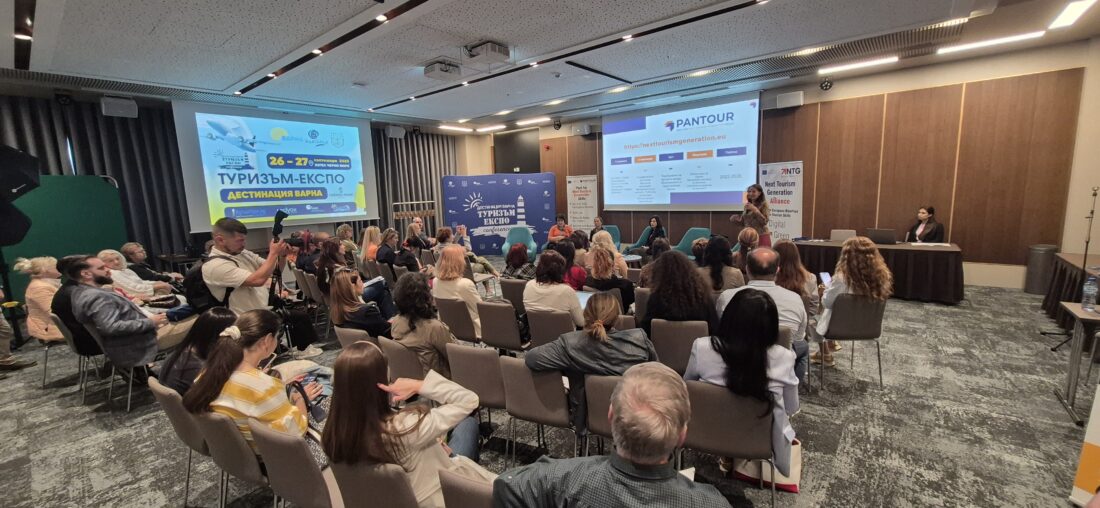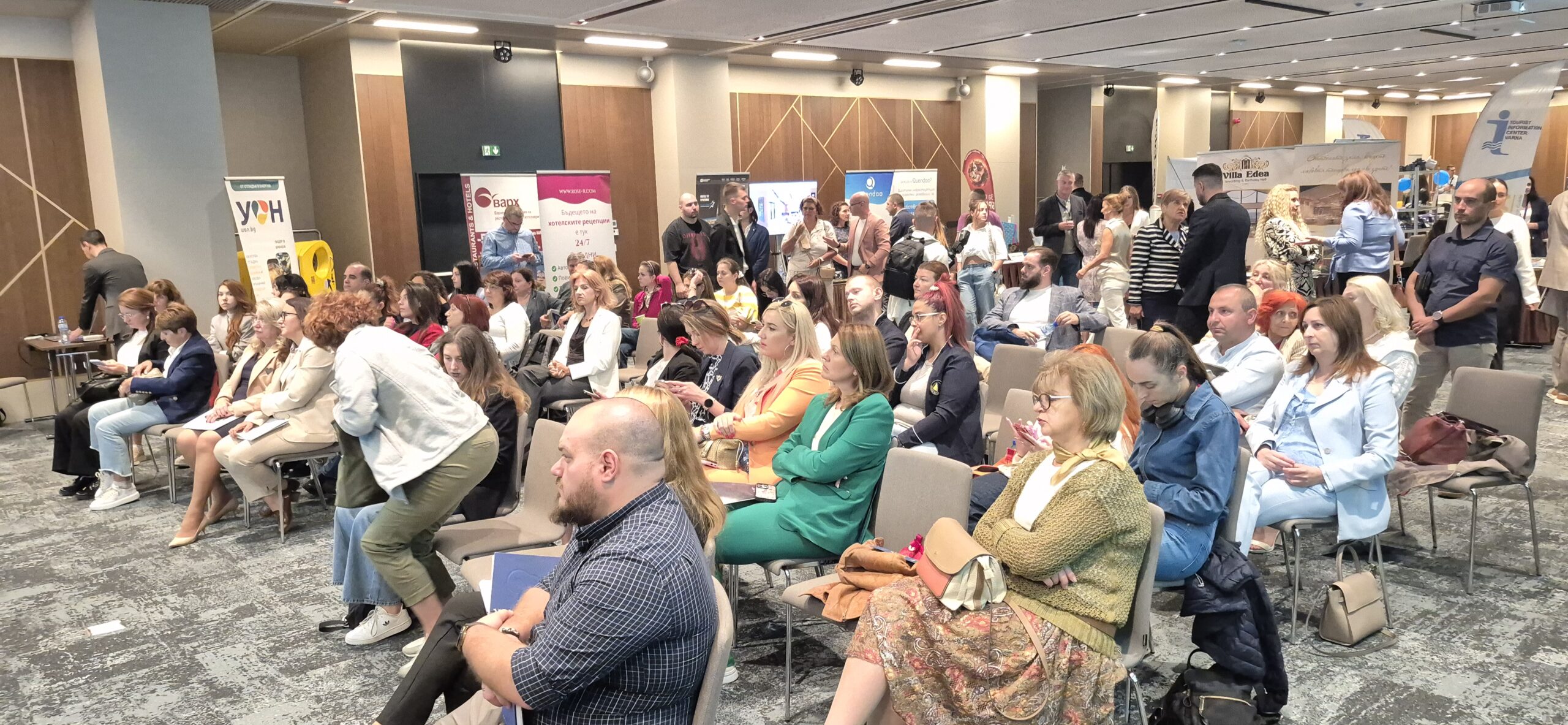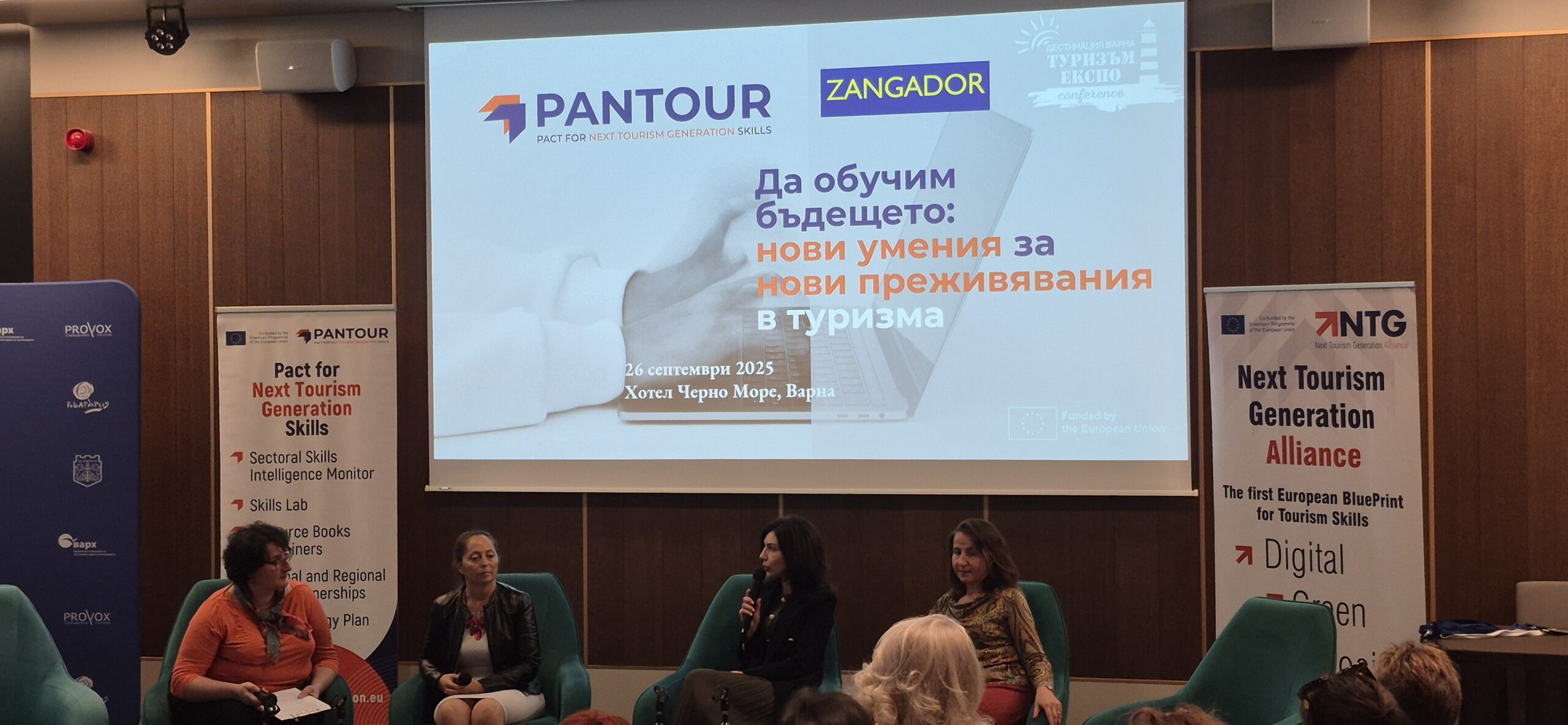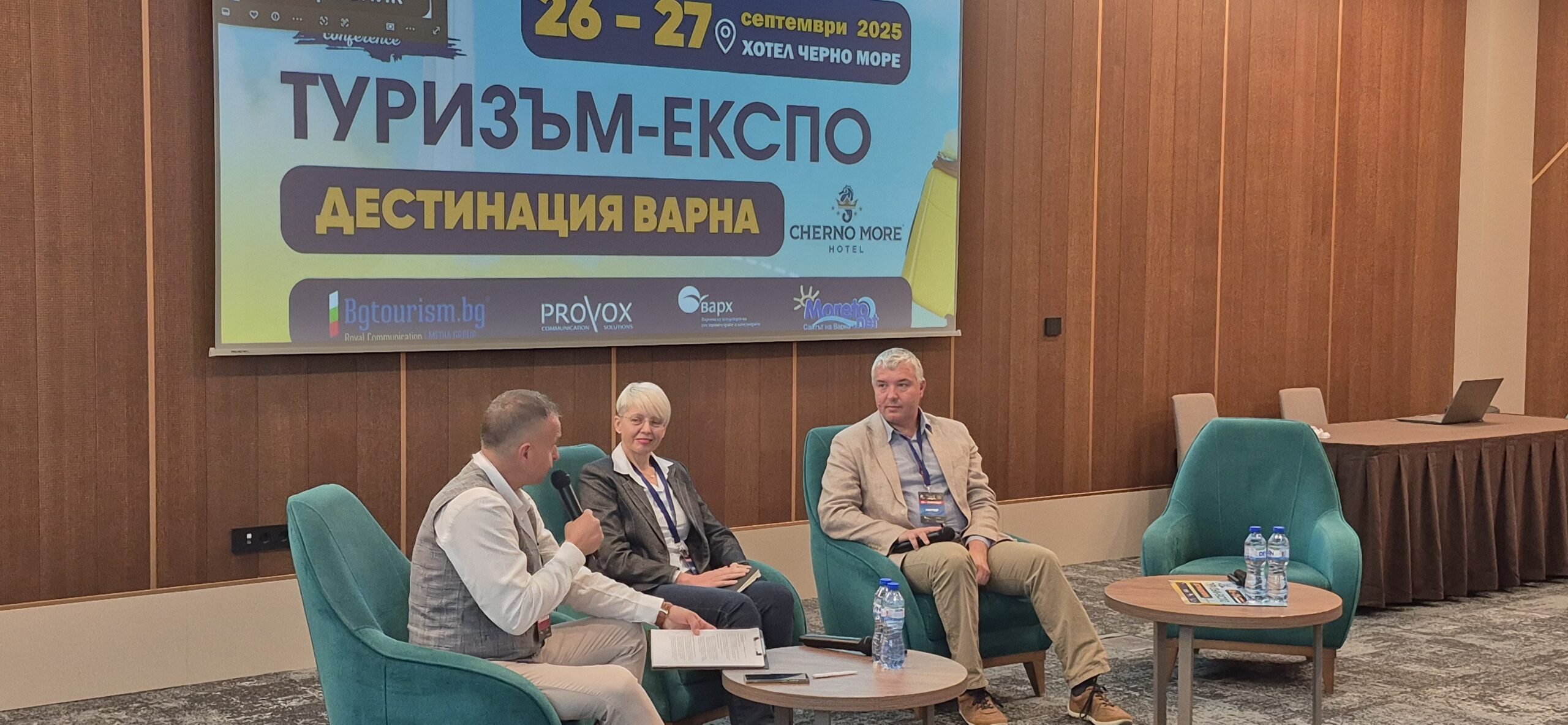Educating the Future: New Skills for New Experiences in Tourism
At the national event TOURISM-EXPO “Destination Varna” (26–27 September 2025), the Zangador Research Institute (ZRI) participated as a co-organiser with two panel sessions, addressing some of the most pressing issues for the future of the tourism sector. One of these was the inspiring discussion “Educating the Future: New Skills for New Experiences in Tourism,” which brought together business leaders, educators, and researchers to reflect on the future of skills in the industry, a field that is simultaneously people-driven and technology-enabled.
Insights from PANTOUR: Next Tourism Generation Skills
The discussion opened with Maya Ivanova (Zangador Research Institute), who presented the main achievements of the PANTOUR: Pact for Next Tourism Generation Skills project. She explained that the project regularly surveys the evolving needs for social, digital, and green skills in tourism, while also working with stakeholders to identify their particular demand, reflecting the sector trends. Another result from project efforts are 11 new job profiles that are emerging in the industry. An important outcome is the Equality, Diversity and Inclusivity (EDI) Handbook of Best Practices, which provides practical guidance for educators and institutions.
Looking to the future, Maya also highlighted the upcoming launch of the Skills Lab: an innovative digital hub designed to serve employees, HR managers, and training providers. The Lab will combine several tools in one place: an instrument for assessing current skills, a database of training institutions, and a wide range of short courses for upskilling and reskilling. All of these resources will be free of charge and accessible to everyone in the tourism sector. Her presentation set the stage for a dynamic conversation about how to train, inspire, and retain talent in tourism.
Voices from the Industry
The panel then turned to the perspectives of experienced practitioners:
Zlatina Mihaylova (General Manager, Hotel Aquamarine, Kranevo) shared her approach to motivating young employees. Through continuous encouragement and leading by example, she sparks pride in their work, helping them see themselves not only as workers but as creators of meaningful experiences for guests. According to her, this sense of purpose improves employee retention and strengthens the image of tourism as a career of choice.
Nevyana Dimitrova (HR Manager, Hotel International, Golden Sands) emphasised the importance of maintaining a human touch in service, especially in an era of rapid technological advancement. Technology, she noted, should remain a tool to support staff, not an end in itself. For her, social skills remain fundamental to customer care.
Irina Petkova (Owner & Manager, Guest House Sasha; Lecturer in HRM at Varna University of Management) pointed to the key role of middle managers as motivators and role models for frontline staff. Training, she argued, should increasingly target this group, empowering them to integrate and inspire their teams effectively. The panelists agreed that while companies recognise the value of training, such initiatives are often irregular and sporadic. Strong initial training, followed by systematic, continuous development opportunities, would not only raise the quality of service but also improve employee competence and motivation.
AI in Tourism in Practice – Applying Artificial Intelligence in Hospitality to Improve Efficiency, Marketing, and Sales
The second ZRI-led session at Destination Varna focused on Artificial Intelligence in Tourism, featuring Stanislav Ivanov (Director, Zangador Research Institute) and Elitsa Stoilova (CEO of Umni.bg), Bulgaria’s leading chatbot company.
Stanislav Ivanov explored the wide opportunities AI brings for both employees and consumers, but stressed that AI should be viewed as a complementary tool for creating experiences. Digital skills, however, are becoming mandatory particularly for younger generations who see them as second nature. As a long-time enthusiast of robotics and automation, he underlined that the ultimate goal is not technology for its own sake, but using it to enhance unforgettable customer experience. For smaller businesses, he emphasised, adopting technology should be based on economic and social justification, not simply on hype.
Elitsa Stoilova reinforced this perspective, highlighting that by automating routine tasks, technologies free up employees to focus on social and emotional dimensions of service. This, in turn, significantly raises the quality of customer experiences. She revealed the formula for success of tourism and hospitality companies: Human employees + AI = Success. Both panelists concluded that the future of tourism depends on a balanced blend of digital and social skills.
A Shared Vision for the Future
The two sessions at Destination Varna made clear that the tourism sector stands at a crossroads. To remain competitive and resilient, it must embrace innovation while staying human-centred, build bridges between education and business, provide structured, continuous opportunities for staff to grow, and recognise the new roles and professions emerging in the industry.
As the discussions in Varna showed, the tourism of tomorrow will not only depend on how well businesses adopt new tools, but also on how they empower their people to use them in meaningful ways.







No Comments